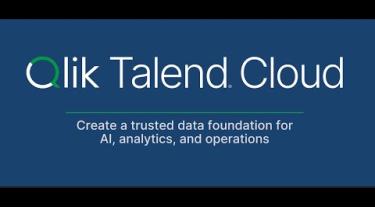
As the volume and complexity of data continues to increase, it becomes imperative for analytics tools to address the growing gap between data collection and data-driven decision-making. Future analytics will aim to close this divide for more effective use of data in decision-making.
While data analytics has the power to provide invaluable insights into a range of organisational challenges, it is only as useful as the decisions it informs. In this article, we will discuss the challenges associated with using data to make decisions and provide strategies to overcome them.
Challenge 1: Quality of data
Is your data accurate, relevant, up-to-date, complete, and reliable?
In today's data-driven business environment, high-quality data is critical for making informed decisions that can have far-reaching consequences. It provides insights into customer behaviour, market trends, and business operations, enabling organisations to identify trends and patterns that can lead to new opportunities and growth. Additionally, data quality is vital for compliance with regulatory requirements, avoiding fines and legal liabilities, and maintaining customer trust. Therefore, organisations must prioritise investing in quality data collection tools and techniques, as well as implementing strategies to verify and ensure the accuracy and reliability of their data.
Challenge 2: Data overload
Are you experiencing decision paralysis due to an abundance of data?
Access to vast amounts of data can be a valuable asset for organisations, providing insights that drive informed decision-making. However, this abundance of data can also present significant challenges, particularly data overload. The sheer volume of data can be overwhelming, leading to decision paralysis, missed opportunities, and reduced competitiveness. Additionally, it can be challenging to identify relevant data from the vast amount available, resulting in inaccurate or irrelevant insights.
Challenge 3: Lack of expertise
Do you have the necessary skills to extract meaningful insights from your data?
The ability to extract valuable insights from data is crucial for informed decision-making in modern organisations. However, this process requires specific skills that not all organisations may possess. A lack of expertise in data analysis can arise from various factors such as inadequate training, staffing shortages, or insufficient investment in analysis tools and technologies. This shortage can lead to inaccurate insights, poor decision-making, and a challenge in attracting and retaining skilled analysts. To overcome this challenge, organisations should adopt a strategic approach that includes training, hiring experts, partnering with external consultants, using data analysis tools, and building a data-driven culture. By doing so, organisations can safeguard accurate and relevant insights and make informed decisions to maintain their competitive advantage.
Challenge 4: Data security and privacy
Is your sensitive data protected from unauthorised access?
As the amount of data being collected increases, so does the risk of data breaches and privacy violations. Organisations must prioritise data security to prevent legal liabilities, reputational damage, and loss of customer trust. Data security and privacy are critical in decision-making, and organisations need to ensure that sensitive data is protected from unauthorised access, disclosure, and cyber-attacks. By developing a data security and privacy policy, investing in data security technologies, conducting regular data audits, educating employees, and using trusted third parties, organisations can minimise the risks associated with data security and privacy in their decision-making process.
Actionable strategies to minimise the data driven decision gap
When used effectively, data has the power to transform decision-making processes. By providing objective, quantitative insights, data can increase accuracy and efficiency, and help organisations make more informed decisions. For example, businesses can use data to better understand customer behaviour and preferences, optimise marketing strategies, and improve product design and development. Governments can use data to inform policy-making and resource allocation, and healthcare providers can use data to improve patient outcomes and reduce costs.
1. Strategies to Overcome Data Quality Challenges
- Invest in data quality tools and techniques that can help verify data before making decisions to ensure its accuracy and relevance.
- Standardise data to ensure consistency and comparability. For example, use common data definitions and formats.
- Integrate data from different sources to ensure that it is complete and accurate.
- Regularly monitor and maintain data quality to ensure that it remains accurate, relevant, and up to date.
2. Strategies to Overcome Data Overload
- Define clear objectives and goals for their data analysis, which can help to focus their efforts and avoid being overwhelmed by irrelevant data.
- Prioritise data based on its relevance and importance to the decision at hand. This can help to ensure that resources are focused on the most critical data. Use data visualisation: Data visualisation tools can help to make large amounts of data more accessible and understandable. Visual representations of data can help to identify patterns and trends that may not be apparent from raw data.
- Use machine learning and other automated data analysis tools to streamline the analysis process and reduce the amount of manual effort required.
- Data governance policies and procedures can help to ensure that data is managed effectively and efficiently, reducing the risk of data overload.
3. Strategies to Overcome a Lack of Expertise in Data Analysis
- Invest in training programs that can help staff develop the necessary data analysis skills.
- Hire skilled data analysts to lead data analysis initiatives and train other staff members.
- Partner with external experts in data analysis to provide additional support and expertise.
- Leverage data analysis tools and technologies to streamline the analysis process and reduce the need for manual data analysis.
- Build a data-driven culture that emphasises the importance of data analysis and encourages staff members to develop their data analysis skills.
4. Strategies to Overcome Data Security and Privacy Challenges
- Develop policies and procedures for data collection, storage, use, and disposal that comply with data protection regulations.
- Invest in data security technologies such as firewalls, encryption, and multi-factor authentication to protect sensitive data.
- Regularly audit data collection, storage, use, and disposal processes to identify vulnerabilities and ensure compliance with data protection regulations.
- Educate employees on the importance of data security and privacy and train them on how to protect sensitive data.
- Only share sensitive data with trusted third parties that have strong data protection policies and procedures.
As a Qlik data and analytics partner, we’re experts in helping our clients realise a competitive advantage from their data. While deep knowledge of the Qlik suite has helped us deliver best-practice business intelligence frameworks and solutions for over 600 projects, it’s our understanding of how data and organisational dynamics work together that really helps our clients maximise value, efficiency and performance from their investments in data and analytics.
Speak to us to find out how we can help you address your data driven decision challenges and support you in closing the gap with actionable strategies.



